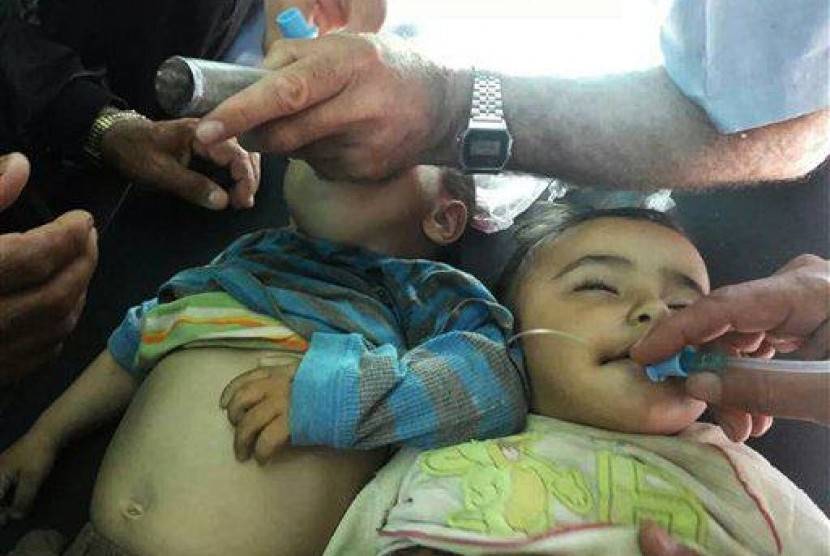REPUBLIKA.CO.ID, DAMASCUS -- Muhannad Samih, a 14-year-old Syrian street vendor, has not only dropped out of school to earn living, but also skipped much of his irreplaceable childhood and it seems that he is going to miss his teenage as well if the long- running Syrian crisis did not come to an end soon.
"I have skipped school long ago, because I wanted to become a man who earns living for my parents and sisters. I have no time for kids' play or teenage romance," he said.
Samih said he had to drop out of school when his six-member family fled the violence in Syria's southern province of Daraa and sought a living in Damascus.
With a bucket of red roses strapped to his waist, Samih stroll down the ancient Hamidiyeh marketplace in Damascus, haunting "love birds" and sweet-talking them into buying from him.
"I know how to embarrass a man in front of his girlfriend or fianc? into buying from me," the teenager said. His smile, however, faded away when he said that he had no time to pursue a hobby or to find a girlfriend.
"I feel I am growing older real fast. I don't have time to play; I don't even have the urge to fool around or have a girlfriend. I am way beyond that because I am a man with responsibility now," Samih said, wearing a long sleeve, black washed out t-shirt tucked in a shabby jeans on a plastic flip-flop.
He, however, wore a fake silver ring on his ring finger, imitating the grown-ups he sees every day at this marketplace. He even talks like a man and walks like one.
"I am the only breadwinner of my family, as my father is sick and I have only sisters, with no brothers to take a shoulder with me," he said.
Samih said he does not think about returning to school anymore.
"I don't think about going back to school. I feel I am older than that, but I tell you I dream of opening a shop in the future, " he said, adding that his work is the only thing occupying his mind.
Samih is one of thousands of children and teenagers, whom the four-year-old crisis has stolen their dreams and hopes and their real ages.
Mazen Tammam, an 11-year-old school student, said he is good at school, but he has for long backed away from his previous dream of becoming a doctor.
"I work at a restaurant in the afternoon and the chef is being paid handsomely and that's exactly what I am focusing on right now. I want to get paid well to help my family," Tammam said, his face looked firm with a frown that carved two lines on his forehead, right between his eyes.
"My father has a heart problem, which prevents him from having a second job and here comes my role to help as much as I can," he said, recounting that he and two of his siblings are having different jobs in the evening to shore up their family.
Even parents who have small children are suffering to provide them with as much of a normal life as possible.
"I am trying hard to provide my children with a normal atmosphere, but it's a mission impossible," Adnan, a father of three said.
"I can take them to restaurants and to amusement parks, but it' s not the way I used to do when I was a kid," he said, adding that "I think a lot before taking my three-year-old daughter to the park because I fear a mortar would strike."
While that was the case for large number of children in government-controlled areas, those who live under the extremist militants' control face more critical challenges, mainly being dragged to hold up weapons.


